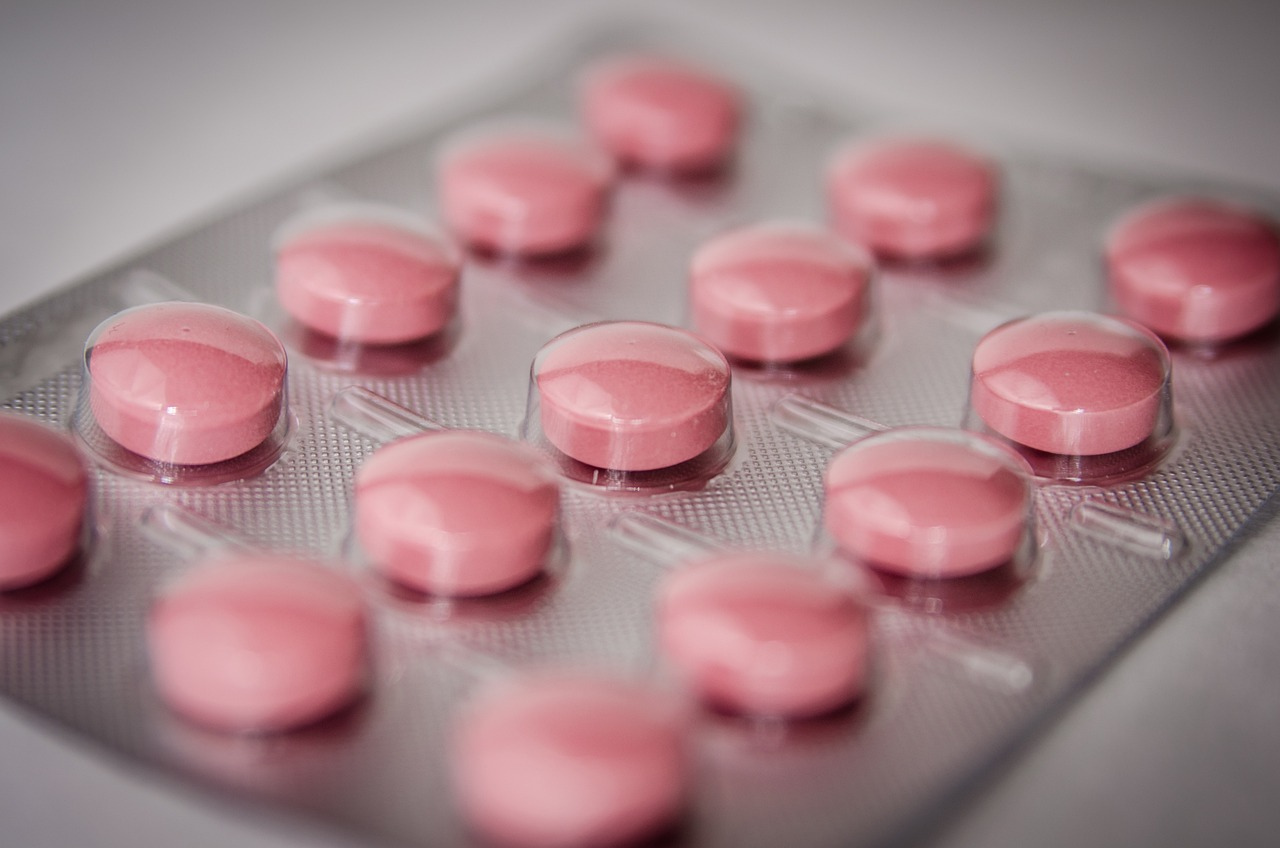Excess Throat Phlegm: Causes, Treatments & the Folate Link
Experiencing an excessive amount of throat phlegm can be unpleasant, irritating, and downright disgusting. However, it’s important to note that excess mucus production plays a crucial role in maintaining our overall health.
This blog post provides a comprehensive guide to throat phlegm, including its causes and treatments. Additionally, there will be a discussion on a possible link between excess phlegm and inadequate folate intake, which may offer a solution for this bothersome condition.
- New Report Says Your Brain Could Be the Key to Reducing Phlegm Over 50
- Doctor's "Leave The Throat Phlegm Behind" Tutorial Goes Viral With People Over 50
- Can You Relieve Throat Phlegm and Coughing In 60 Seconds A Day? This Doctor Says Yes
- How To Banish Phlegm When 50+ (Do This Every Day)
Key Takeaways
- Various factors, such as allergies, infections, or acid reflux, can cause excess throat phlegm.
- Natural remedies such as moisturizing the air, drinking more liquids, using a throat cleaner, and running a cool mist humidifier can help reduce excess throat phlegm.
- If the excess phlegm persists for more than a few weeks or is accompanied by other symptoms like coughing or difficulty breathing, it is crucial to seek medical attention.
Throat Phlegm and Mucus: What’s the Difference?
Though the words “phlegm” and “mucus” are often used interchangeably, as we will also do throughout this blog post, there is a difference.
Mucus is a clear, runny fluid produced by mucous glands along the lining of your mouth, throat, and nose. This is the substance that you blow out of your nose. On the other hand, phlegm is a thicker form of mucus produced by the lungs and lower respiratory tract. It is coughed up from the lungs and travels to your throat.
Purpose of Mucus and Phlegm
Your glands produce mucus constantly to protect the body and keep it functioning healthily. The role of mucus varies based on its location within the body. It can function as a lubricant to keep the tissues from drying out, a protective barrier, or a substance that aids in trapping and flushing out foreign objects.
Although mucus may seem unpleasant, it plays a crucial role in your body’s defense system. Mucus in your lungs can help remove bacteria that might otherwise cause infection. Mucus in your nose can help prevent viruses, bacteria, and allergens from entering your body.
Normally, you don’t notice the mucus in your upper respiratory system as you swallow it with your saliva. However, with the thick mucus that occurs due to infection, allergies, or other health conditions, it becomes very noticeable and can cause discomfort and coughing.
So, while it may seem unpleasant and have an unpleasant taste, it is an essential part of keeping your respiratory system healthy.

Symptoms of Excess Throat Phlegm and Mucus Production
Symptoms of excessive throat phlegm and mucus production may include:
- Persistent cough
- Difficulty breathing
- Post nasal drip
- Thick phlegm
- Runny nose
- Stuffy nose
- The sensation of a lump in the throat
- Frequent throat clearing
- Congestion of nose and sinuses
- Shortness of breath (if the mucus blocked the airways)
- Itchy eyes
- Sore throat
- Chest pain, which can indicate a chronic respiratory condition or other health issues

What Causes Excessive Throat Phlegm and Mucus Production?
Various factors and conditions can cause excessive mucus production in the throat, sinuses, and lungs.
While regular mucus production is natural, irritation or infection of the membranes in the sinuses or throat can trigger an overproduction of mucus. Infections can also stimulate submucosal glands to produce more mucus, leading to a buildup in the throat.
Additionally, lung diseases like asthma and chronic obstructive pulmonary disease (COPD) can cause excess mucus production, which originates in the airways and lungs. However, individuals with these conditions may not be able to effectively expel the mucus through coughing, resulting in its accumulation in the back of the throat.
There are many health conditions and factors that can lead to irritation or infection and cause an increase in mucus production in the throat, including:
- Cold, flu, or other upper respiratory infections
- Bacterial infection of the lungs, like pneumonia
- Allergies and other irritants that inflame the lungs or throat
- Acid reflux, due to the throat irritation caused by stomach acid
- Chronic lung diseases, such as chronic bronchitis and asthma, that may promote phlegm accumulation in the throat. Chronic obstructive pulmonary disease (COPD) is another chronic lung disease that can lead to excessive phlegm production.
- Cold air. The resulting throat irritation can cause excess mucus production.
- Neuromuscular diseases, such as multiple sclerosis and Amyotrophic lateral sclerosis (ALS), which may negatively affect a person’s coughing reflex and allow phlegm to pool in the throat

Neuroinflammation (Brain Inflammation): An Overlooked Cause of Throat Phlegm?
Yes. Chronic inflammation in the brain can lead to various physical symptoms, including the production of throat phlegm.
An overactive immune system is responsible for brain inflammation, which can be triggered by various factors such as infections, stress, and exposure to environmental toxins. When the immune system is overactive, it releases inflammatory molecules that can harm the brain, leading to a variety of symptoms such as headaches, dizziness, fatigue, and mental confusion. An increase in phlegm production is one of the less commonly known symptoms of brain inflammation, which can cause congestion and difficulty in breathing.
Harvard research has established a link between brain inflammation and vitamin deficiency, which can contribute to excessive mucus production (1). As it turns out, folate (vitamin B9) is one of the essential vitamins for brain function and inflammation prevention, which in turn can reduce the production of throat phlegm. Ensuring adequate vitamin intake is the best way to prevent brain inflammation and the associated production of phlegm.
Reducing Excess Throat Phlegm Treatments
Below are several ways to efficiently reduce throat phlegm and mucus production at home:
Drink more liquids.
If you’re experiencing congestion, drinking enough liquids, especially warm ones, can help thin and loosen mucus, allowing it to flow more easily.
You can try sipping liquids such as juice, clear broths, and soup. Other good liquid choices include decaffeinated herbal tea, warm fruit juice, and warm lemon water with honey.
Moisturize the air.
One way to keep mucus thin is by moisturizing the air around you. You can effectively do this by using a cool mist humidifier, which you can run safely all day long. It is vital to change the water in your humidifier every day and clean it in accordance with the package instructions to maintain its safety and effectiveness.

Use a nasal irrigation system.
Excess mucus can accumulate in the sinuses and settle in the throat, causing discomfort. One way to alleviate this is by using a neti pot or another nasal irrigation system to rinse the sinuses. This method can help flush out the excess mucus and remove allergens that cause the overproduction of mucus.
It is important to note that the Food and Drug Administration (FDA) (2) recommends using only sterile, distilled, or previously boiled water when rinsing the sinuses to prevent contamination.
Gargle with warm salt water regularly.
Gargling is an effective way of reducing phlegm and other throat irritations. It helps to loosen and thin out the phlegm, making it easy to clear away. Regular gargling is an easy home remedy that research suggests may even help prevent respiratory infections.
For best results, add a small amount of salt to the warm water, which can help break down excess mucus and provide even better relief.

Use saline nasal sprays.
Saline nasal sprays can be an effective natural remedy for clearing phlegm from the throat and nasal passages. The saltwater solution in the spray helps to draw out excess mucus and allergens that can lead to congestion, irritation, and inflammation in the nose (3).
You can purchase saline nasal sprays from a physical or online store or buy saline nasal washes and use them in your Neti pot.
It is crucial to use a saline nasal solution instead of tap water because tap water may contain bacteria and other microbes that can harm you if inhaled (4).
Take over-the-counter medications.
There are various over-the-counter medicines available that you can use to alleviate the symptoms of congestion. Decongestants can be pretty helpful in reducing the amount of mucus that flows from your nose. Although this mucus is not considered phlegm, it can still lead to excess throat phlegm and chest congestion. Decongestants work by reducing the inflammation in your nose and opening up your airways. In addition, there are many decongestant nasal sprays that you can try as well.
Another option is to use products like guaifenesin (Mucinex), which can help thin mucus and prevent it from accumulating in the back of your throat or chest. This type of medication is an expectorant, designed to help you expel mucus by loosening and thinning it.

Get enough folate.
Taking a vitamin B9 (folate) supplement or eating folate-rich foods can help prevent chronic brain inflammation and the resulting throat phlegm.
Foods rich in folate include:
- Beans
- Avocado
- Liver
- Eggs
- Sunflower seeds
- Oranges
- Bananas
- Whole wheat bread
- Quinoa
- Lentils
- Chickpeas
- Lemons
Unfortunately, many people have an MTHFR gene mutation that prevents them from adequately absorbing folate from all traditional sources, including supplements and food. Therefore, if you decide to take supplements, you must purchase a bioavailable form of folate.
When to See a Healthcare Provider
Experiencing excess or thick phlegm now and then is generally not a cause for concern. You may notice it in the morning as it accumulates and dries overnight. Additionally, you may see phlegm more if you’re unwell, have seasonal allergies, or are dehydrated.
However, if uncomfortable phlegm becomes a recurring issue, it is advisable to schedule an appointment with your doctor. Several health conditions, such as acid reflux and cystic fibrosis, can cause a buildup of phlegm.
Contact your doctor if you have excess mucus and phlegm that have lasted more than a few weeks or are also experiencing other symptoms, like chest pain, wheezing, and shortness of breath. You should also call your doctor immediately or go to the emergency room if you cough up blood.
Summary
Illnesses, seasonal allergies, or underlying medical conditions can cause excess phlegm.
The good news is that there are effective remedies you can try at home to help reduce phlegm. Drinking plenty of fluids, using a humidifier, gargling with warm salt water, and using over-the-counter medication can all help.
If the phlegm persists for over a few weeks, or if you experience chest pain or wheezing, then it’s best to contact your healthcare provider. And if excess phlegm is accompanied by shortness of breath, difficulty breathing, difficulty swallowing, or coughing up blood, then it’s important to call 911 immediately.
Frequently Asked Questions
How do you get rid of phlegm in your throat?
Strategies to reduce throat phlegm include:
- Drinking more liquids
- Moisturizing the air
- Using a nasal irrigation system
- Gargling with warm salt water
- Using saline nasal sprays
- Taking over-the-counter medications
- Get enough folate.
What causes excess phlegm in your throat?
Many factors can cause excess phlegm in your throat, including allergies, asthma, flu or cold, breathing cold air, chronic bronchitis, acid reflux, and cystic fibrosis.
Does throat phlegm mean anything?
It is common to cough up phlegm during a cold, but it can also indicate serious conditions such as acid reflux, lung disease, or asthma.
Why do I feel like I have mucus stuck in my throat all the time?
Our sinuses, throat, and nose naturally produce mucus that we usually swallow unconsciously. However, sometimes, the mucus builds up or trickles down the back of our throat, called postnasal drip. Infections, allergies, or acid reflux can cause this.
- New Report Says Your Brain Could Be the Key to Reducing Phlegm Over 50
- Doctor's "Leave The Throat Phlegm Behind" Tutorial Goes Viral With People Over 50
- Can You Relieve Throat Phlegm and Coughing In 60 Seconds A Day? This Doctor Says Yes
- How To Banish Phlegm When 50+ (Do This Every Day)
References
1- https://www.mirelleantiaging.com/brain-inflammation-and-phlegm
2- https://www.fda.gov/consumers/consumer-updates/rinsing-your-sinuses-neti-pots-safe
3- https://medlineplus.gov/ency/patientinstructions/000801.htm
4- https://newsinhealth.nih.gov/2020/08/marvels-mucus-phlegm#
Dr. Matthew Olesiak, MD, is the Chief Medical Director at SANESolution, a renowned wellness technology company dedicated to providing evidence-based solutions for optimal living. Dr. Olesiak earned his medical degree from the prestigious Jagiellonian University Medical College in Kraków, Poland, where he developed a strong foundation in medicine.





